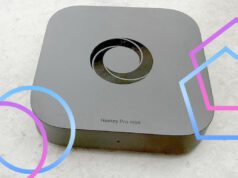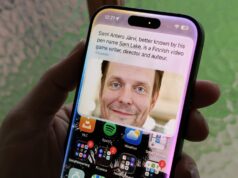And much as display technology has improved exponentially in the smartphone era, there’s still one undefeated final boss – that big yellow orb on the other side of the solar system.
While phone screens can now survive encounters with gravity and H2O that could have destroyed their forebears, trying to read your text messages on a blazingly sunny day is often a stretch, even with the display brightness turned up to full whack.
MacBook Air M2 13-inch is now just £903
The Apple MacBook Air M2 is still an absolutely brilliant laptop and now you can get it in Space Grey for just £903. That’s a lot cheaper than the £999 Apple now sells it for.
- Amazon
- Was £1,149
- Now £903
According to a report, Apple is planning on combatting this scourge of decent visibility with new technology that’ll debut on the iPhone 17 range, likely due in 2025.
A leak from a Weibo user with previous for accurate iPhone information said Apple is working on a display with a new anti-reflective layer, but it won’t be ready in time for the September 2024 release of the iPhone 15.
He said the display will also have a super-hard, scratch-resistant quality that’ll have to go some if it’s going to improve upon the excellent Ceramic Shield technology Apple has been using in iPhone models for quite some time now.
A (rough) translation of the purported information posted by the Instant Digital account (via 9to5Mac) reads: “Apple spent billions on coating equipment in Japan, which has been handed over to China’s supply chain, but the iPhone 16 series can’t keep up. The outer glass of the iPhone 17 series will be made into a super-hard [anti-reflective] layer. It can be said that the iPhone 17 series will be more scratch-resistant than you think.”
Of course, this is very much still a rumour, so we’re taking it with a pinch of salt right now.
On the other side of the aisle, Samsung has made a few leaps forward in fending off reflections with the Galaxy S24 series. It was the first manufacturer to deploy the new Corning Gorilla Armor tech, which reduces reflections by up to 75%.
That’s different from the Reflection Removal technology Samsung added via Galaxy AI, that’ll remove reflections from photos taken with the device’s cameras.









